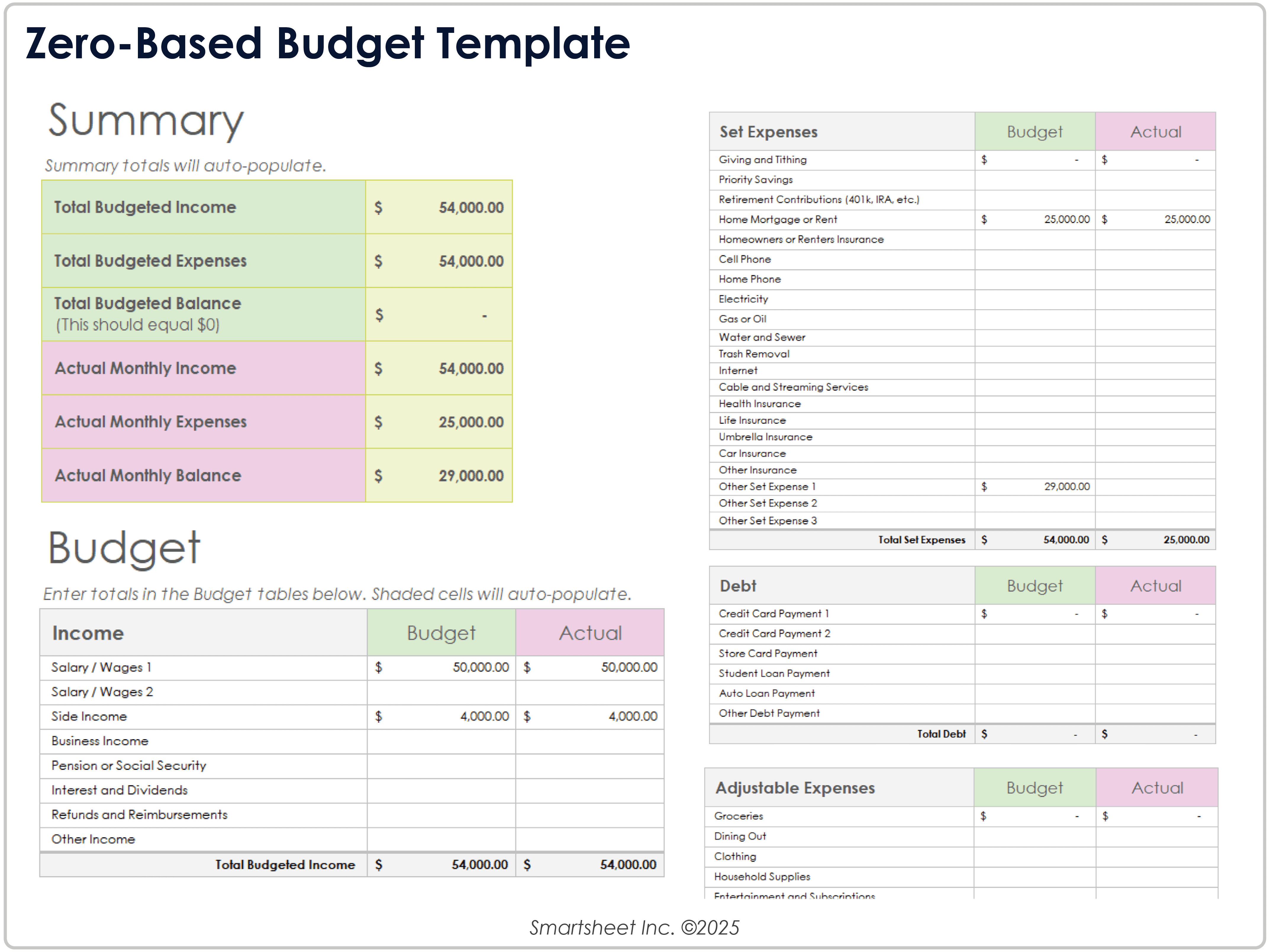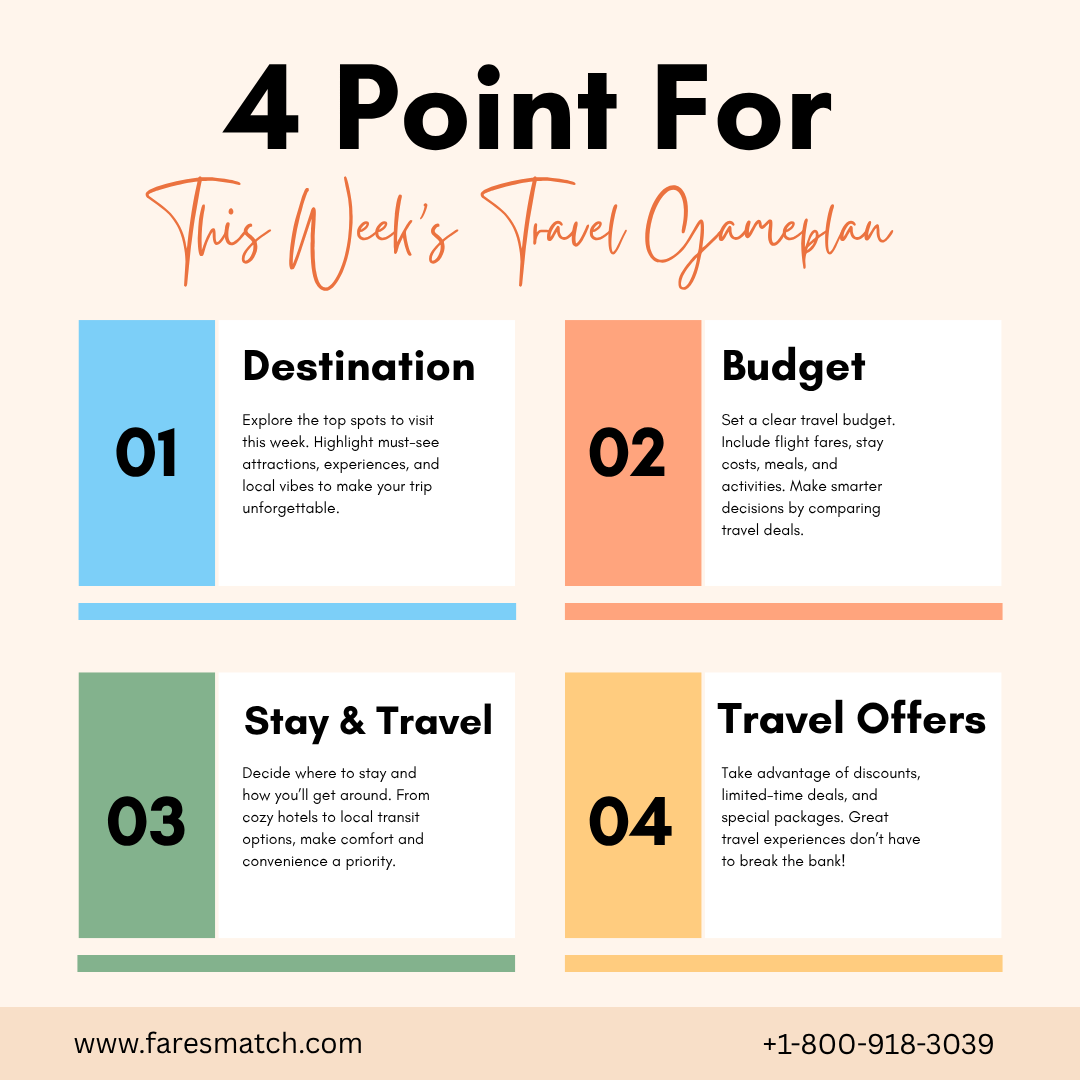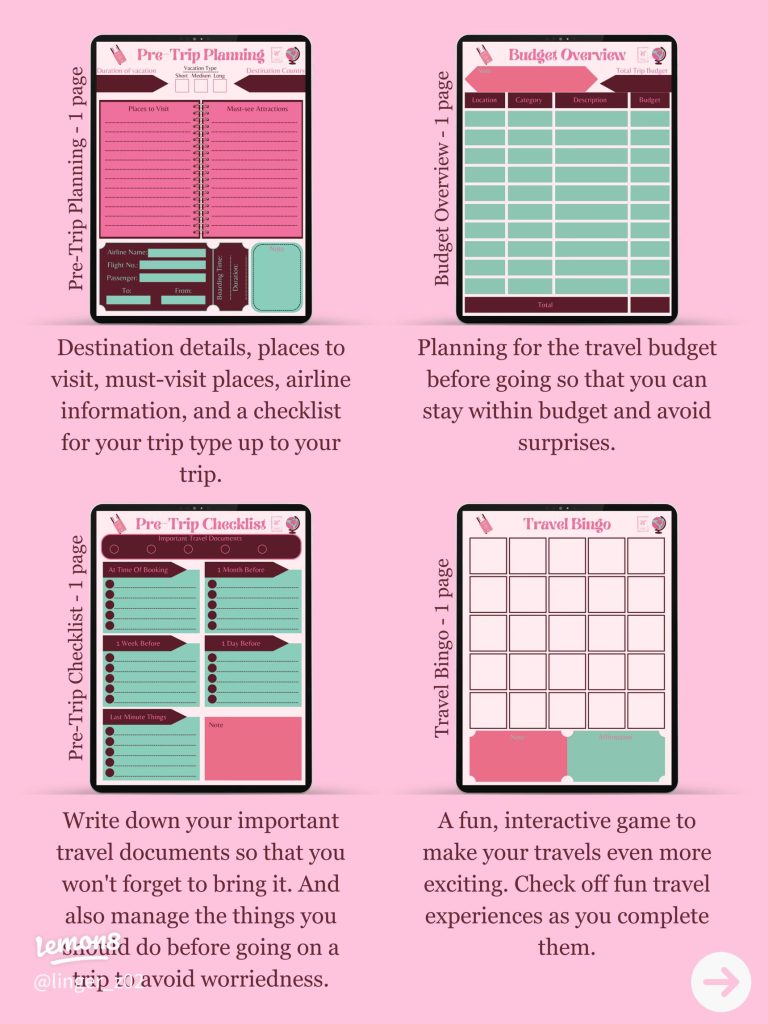Planning a trip is exciting, but figuring out how much money you need can feel overwhelming. You want to enjoy your adventure without worrying about running out of cash.
That’s where a travel budget comes in. When you know exactly how to make a travel budget, you gain control over your spending and can relax more during your trip. You’ll discover simple steps to create a budget that fits your dream vacation.
Keep reading, and you’ll learn how to save smart, avoid surprises, and make your travel experience truly unforgettable.
Credit: www.ladieswhattravel.com
Set Your Travel Goals
Setting clear travel goals helps you plan a budget that fits your trip. Knowing what you want makes it easier to decide where to spend money.
Start by thinking about your travel goals. This will guide all your budget choices and keep your trip on track.
Choose Your Destination
Pick a place you want to visit. The destination affects your costs, like flights and hotels. Some places are cheaper than others.
Think about the climate, culture, and activities. Choose a destination that fits your interests and budget.
Determine Trip Duration
Decide how many days you will travel. Longer trips usually cost more. But short trips might limit what you can do.
Balance your time and money. Find a trip length that fits your schedule and budget well.
Identify Travel Priorities
Know what matters most to you on the trip. It could be food, sightseeing, or comfort. Your priorities shape your budget.
- If food is a priority, plan for nice meals
- If sights matter, budget for tickets and tours
- If comfort is key, choose better lodging

Credit: www.smartsheet.com
Research Costs
Making a travel budget starts with researching costs. Knowing expenses helps you plan better.
Look at all parts of your trip to create a clear budget. This includes transport, stay, food, and fun.
Estimate Transportation Expenses
Transportation is a big part of travel costs. Check prices for flights, trains, buses, or car rentals.
Think about local transport too, like taxis or public transit. Add these to your budget.
- Search for round-trip flight prices
- Compare train and bus ticket costs
- Include airport transfer expenses
- Estimate taxi or ride-share fares
- Check car rental fees and fuel costs
Calculate Accommodation Rates
Accommodation costs vary by place and type. Look for hotels, hostels, or vacation rentals.
Check prices for the dates you plan to travel. Consider extra fees like taxes or cleaning charges.
- Compare prices on booking websites
- Check cancellation policies
- Look for deals or discounts
- Include taxes and service fees
- Think about location and convenience
Plan For Food And Dining
Food can add up quickly on a trip. Estimate how much you will spend each day on meals.
Include snacks, drinks, and dining out. Think about cooking if you have access to a kitchen.
- Check prices for local restaurants
- Plan for breakfast, lunch, and dinner
- Include snacks and drinks costs
- Consider grocery shopping if possible
- Account for special meals or treats
Consider Activities And Attractions
Look into costs for tours, museums, and events. Some places charge entry fees or require tickets.
Include any gear rentals or guide services you want. Add these to your budget for fun activities.
- Check ticket prices for attractions
- Include tour or guide fees
- Plan for equipment rentals
- Look for free or low-cost activities
- Budget for souvenirs or extras
Create A Budget Framework
Making a travel budget helps you control your expenses. It makes your trip more relaxing and fun.
Start by planning how much money you need. This planning guides your spending during the trip.
Allocate Funds By Category
Divide your money into different parts. Each part covers a travel need like transport or food.
Common categories include accommodation, meals, transport, and activities. This helps track spending clearly.
- Accommodation: hotel or rental costs
- Meals: breakfast, lunch, and dinner
- Transport: flights, trains, local travel
- Activities: tours, entrance fees, entertainment
- Shopping and souvenirs
Include Emergency Reserves
Set aside extra money for unexpected costs. Emergencies can happen anytime during travel.
This reserve covers things like sudden medical needs or travel changes. Keep this money separate.
- Plan 10-20% of your total budget for emergencies
- Use cash or a separate savings account
- Do not spend this money unless it is urgent
Set Daily Spending Limits
Decide how much you can spend each day. This keeps your budget steady throughout the trip.
Track your daily expenses to avoid running out of money early. Adjust limits if you spend less one day.
| Expense Type | Daily Limit |
|---|---|
| Meals | $30 |
| Transport | $15 |
| Activities | $25 |
| Shopping | $10 |

Credit: x.com
Find Money-saving Strategies
Making a travel budget helps you control your spending. Finding ways to save money lets you enjoy your trip more.
There are smart strategies to cut costs. Use these tips to keep your travel budget low.
Book Early For Discounts
Booking your flights and hotels early often gives you lower prices. Many companies offer discounts to early buyers.
Waiting too long can make prices go up. Plan and reserve as soon as you can for the best deals.
Use Travel Rewards And Points
Travel rewards and points can reduce your costs. Earn points from credit cards or loyalty programs.
Redeem points for flights, hotels, or car rentals. This saves your cash for other expenses.
Opt For Budget-friendly Options
Choose affordable places to stay like hostels or guesthouses. Look for local food instead of expensive restaurants.
Use public transport instead of taxis. These choices help you spend less every day.
- Hostels and guesthouses
- Street food and local markets
- Buses and trains
- Free or low-cost attractions
Travel During Off-peak Times
Traveling in off-peak seasons means lower prices and fewer crowds. Hotels and flights cost less.
Check the best months to visit your destination. Adjust your plans to save money and enjoy a quiet trip.
Track Your Spending
Tracking your spending helps you stay within your travel budget. It shows where your money goes during the trip.
By watching your expenses, you can avoid surprises and adjust your plans if needed.
Use Budgeting Apps
Budgeting apps make it easy to record your travel costs. You can enter expenses as you spend money.
These apps can sort expenses into categories like food, transport, and lodging.
- Track spending in real time
- Set limits for each category
- See charts of your expenses
Keep Receipts And Records
Saving receipts helps you check your spending later. You can compare receipts to your budget.
Use a folder or an app to keep all receipts safe and easy to find.
- Collect receipts for food and drinks
- Keep tickets and bills for transport
- Store hotel or rental invoices
Adjust Budget As Needed
Your spending may change during the trip. Adjust your budget to stay on track.
If you spend more in one area, reduce costs in another to balance your budget.
- Check your expenses daily
- Cut back on extras if needed
- Keep a flexible plan for changes
Prepare For Unexpected Costs
Travel plans can change quickly. Unexpected costs may appear anytime during your trip. Being ready helps you avoid stress and money problems.
Setting aside extra money and knowing what to do in emergencies makes your trip safer and smoother. Here are some ways to prepare for surprises.
Plan For Travel Insurance
Travel insurance helps cover costs from accidents, illness, or lost belongings. It can save you from big expenses. Buy insurance before you leave.
Check what your insurance covers. Look for medical help, trip cancellations, and lost luggage. Choose a plan that fits your travel needs and budget.
Set Aside Extra Funds
Always keep extra money for emergencies. You may need cash for taxis, food, or last-minute changes. This helps you stay calm and ready.
- Save at least 10-20% of your total budget for surprises
- Use a separate wallet or account for emergency money
- Keep some cash in local currency and some on a card
Know Local Emergency Contacts
Learn phone numbers for local police, hospitals, and your country’s embassy. Save these contacts on your phone and write them down.
- Emergency police number
- Nearest hospital or clinic
- Your country’s embassy or consulate
- Local taxi services for quick transport
Frequently Asked Questions
What Are The First Steps To Create A Travel Budget?
Start by listing your destination, travel dates, and trip length. Research costs for flights, accommodation, food, and activities. Set a realistic spending limit based on your finances. This helps you plan and avoid overspending during your trip.
How To Estimate Daily Expenses For Travel Budgeting?
Calculate daily costs for meals, transport, and attractions. Use travel blogs and forums for local price insights. Add a buffer for unexpected expenses. This approach ensures your budget covers everyday spending without surprises.
How Can I Save Money When Making A Travel Budget?
Book flights and hotels early for better deals. Use public transport and local eateries to cut costs. Look for free attractions and discounts. Saving on basics helps stretch your travel budget further.
Should I Include Emergency Funds In My Travel Budget?
Yes, always allocate 10-15% of your budget for emergencies. This covers medical issues, lost items, or sudden changes. Having an emergency fund reduces stress and keeps your trip smooth.
Conclusion
Creating a travel budget helps you save money and enjoy your trip. Start by listing all possible expenses clearly. Track your spending to avoid surprises during travel. Adjust your budget as needed to stay on track. Planning ahead reduces stress and makes travel fun.
Remember, simple steps lead to smarter spending. Budgeting lets you focus more on the experience. Travel with confidence knowing your money is managed well.

